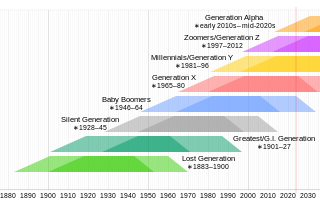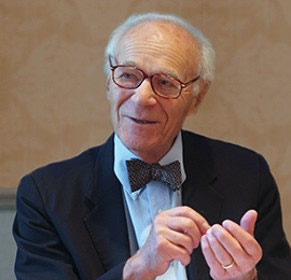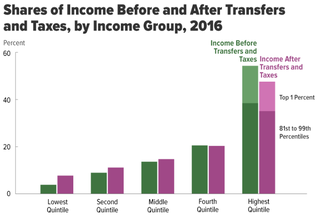
Macroeconomics is a branch of economics that deals with the performance, structure, behavior, and decision-making of an economy as a whole. This includes national, regional, and global economies. Macroeconomists study topics such as output/GDP and national income, unemployment, price indices and inflation, consumption, saving, investment, energy, international trade, and international finance.

Economic history is the study of history using methodological tools from economics or with a special attention to economic phenomena. Research is conducted using a combination of historical methods, statistical methods and the application of economic theory to historical situations and institutions. The field can encompass a wide variety of topics, including equality, finance, technology, labour, and business. It emphasizes historicizing the economy itself, analyzing it as a dynamic entity and attempting to provide insights into the way it is structured and conceived.

An economist is a professional and practitioner in the social science discipline of economics.

Economic growth can be defined as the increase or improvement in the inflation-adjusted market value of the goods and services produced by an economy in a financial year. Statisticians conventionally measure such growth as the percent rate of increase in the real and nominal gross domestic product (GDP).

Morgan Stanley is an American multinational investment bank and financial services company headquartered at 1585 Broadway in Midtown Manhattan, New York City. With offices in 41 countries and more than 900,000 employees, the firm's clients include corporations, governments, institutions, and individuals. Morgan Stanley ranked No. 61 in the 2023 Fortune 500 list of the largest United States corporations by total revenue and in the same year ranked #30 in Forbes Global 2000.

Millennials, also known as Generation Y or Gen Y, are the demographic cohort following Generation X and preceding Generation Z. Researchers and popular media use the early 1980s as starting birth years and the mid-1990s to early 2000s as ending birth years, with the generation typically being defined as people born from 1981 to 1996. Most Millennials are the children of Baby Boomers and older Generation X. In turn Millennials are often the parents of Generation Alpha.
Business cycles are intervals of general expansion followed by recession in economic performance. The changes in economic activity that characterize business cycles have important implications for the welfare of the general population, government institutions, and private sector firms.

Lawrence Robert Klein was an American economist. For his work in creating computer models to forecast economic trends in the field of econometrics in the Department of Economics at the University of Pennsylvania, he was awarded the Nobel Memorial Prize in Economic Sciences in 1980 specifically "for the creation of econometric models and their application to the analysis of economic fluctuations and economic policies." Due to his efforts, such models have become widespread among economists. Harvard University professor Martin Feldstein told the Wall Street Journal that Klein "was the first to create the statistical models that embodied Keynesian economics," tools still used by the Federal Reserve Bank and other central banks.

Simon Smith Kuznets was a Russian-born American economist and statistician who received the 1971 Nobel Memorial Prize in Economic Sciences "for his empirically founded interpretation of economic growth which has led to new and deepened insight into the economic and social structure and process of development."
Economic forecasting is the process of making predictions about the economy. Forecasts can be carried out at a high level of aggregation—for example for GDP, inflation, unemployment or the fiscal deficit—or at a more disaggregated level, for specific sectors of the economy or even specific firms. Economic forecasting is a measure to find out the future prosperity of a pattern of investment and is the key activity in economic analysis. Many institutions engage in economic forecasting: national governments, banks and central banks, consultants and private sector entities such as think-tanks, companies and international organizations such as the International Monetary Fund, World Bank and the OECD. A broad range of forecasts are collected and compiled by "Consensus Economics". Some forecasts are produced annually, but many are updated more frequently.

Xavier X. Sala i Martín is a Catalan economist and professor of economics at Columbia University. Sala i Martin is one of the leading economists in the field of economic growth.

Kamer Daron Acemoğlu is a Turkish-American economist of Armenian descent who has taught at the Massachusetts Institute of Technology since 1993, where he is currently the Elizabeth and James Killian Professor of Economics, and was named an Institute Professor at MIT in 2019. He received the John Bates Clark Medal in 2005, and the Nobel Prize in Economics in 2024.

Mitsubishi UFJ Financial Group, Inc. is a Japanese bank holding and financial services company headquartered in Chiyoda, Tokyo, Japan. MUFG was created in 2005 by merger between Mitsubishi Tokyo Financial Group and UFJ Holdings. These two groups in turn brought together multiple predecessor banks including Mitsubishi Bank, Yokohama Specie Bank, Sanwa Bank, and Tokai Bank.

Branko Milanović is a Serbian-American economist. He is most known for his work on income distribution and inequality.

Income inequality has fluctuated considerably in the United States since measurements began around 1915, moving in an arc between peaks in the 1920s and 2000s, with a 30-year period of relatively lower inequality between 1950 and 1980.
Prakash Loungani is a macroeconomist known for his work on the difficulty of forecasting recessions, which has been featured in the Financial Times and The Guardian and on the BBC. He has nudged macroeconomists towards adopting the goal of “inclusive growth” through research on understanding and lowering unemployment ; documenting the impact of austerity on inequality ; and uncovering the role of unfettered capital mobility across national borders in lowering labor’s share of income. His early research focused on understanding the impacts of oil prices on the economy. He is an advisor and senior personnel manager in the International Monetary Fund's Independent Evaluation Office. He blogs as The Unassuming Economist.
The economic policy of the Donald Trump administration was characterized by the individual and corporate tax cuts, attempts to repeal the Affordable Care Act ("Obamacare"), trade protectionism, deregulation focused on the energy and financial sectors, and responses to the COVID-19 pandemic.
Ellen Hughes-Cromwick is an American economic advisor serving as a senior economist at the University of Michigan Energy Institute. She previously served as the chief economist for Ford Motor Company for over 18 years, and oversaw the company through the 2008 financial crisis. Hughes-Cromwick has been involved with the National Association for Business Economics for over a decade, and served as the association's president from 2007 to 2008.

Donald Jasper Harris, is a Jamaican-American economist and emeritus professor at Stanford University, known for applying post-Keynesian ideas to development economics. He was the first Black scholar granted tenure in the Stanford Department of Economics, and he is the father of Kamala Harris, the incumbent Vice President of the United States and 2024 Democratic presidential nominee, and of Maya Harris, a lawyer, advocate and writer.

Zillennials, or Zennials, is a social cohort encompassing people born on the cusp of, or during the latter years of the Millennial generation and the early years of Generation Z. Their adjacency between the two generations and limited age set has led to their characterization as a "micro-generation". They are generally the children of younger Baby Boomers and Generation X. Estimates of the U.S. population in this cohort range from 30 million to 48 million.














